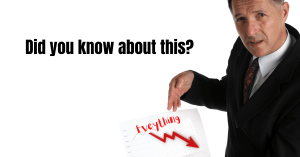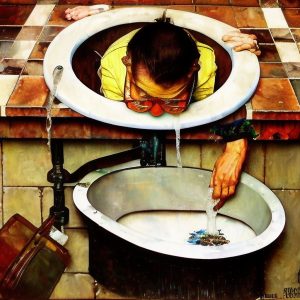
In a functioning Democracy, the citizens have a say in making decisions about how the country is run. This power is exercised through voting. Voting is one of the most important rights that citizens have, and it is essential to the functioning of a democracy.
Informed voting is vital to a democracy. It allows citizens to have a say in who represents them and what policies are enacted. When citizens are informed about the candidates and the issues, they can make better choices about who to vote for. This helps to ensure that the government is responsive to the needs of the people.
Informed voting helps to hold elected officials accountable. When citizens are aware of the actions of their elected officials, they can hold them accountable for their promises and for the policies that they enact. This helps to ensure that the government is responsive to the needs of the people and that it is not corrupt.
Informed voting helps to promote civic engagement. When citizens participate in the political process by voting, they are more likely to be engaged in other civic activities, such as volunteering and attending community events. This helps to build a strong and vibrant democracy.
We all know voting is important, but unfortunately, these days it isn’t enough.
Just Voting Isn’t Enough
There are many reasons why elections and voting are not enough to guarantee a well-functioning democracy and accountable leadership in the US today.
- The US political system is heavily influenced by money. Political campaigns are very expensive, and candidates need to raise large sums of money to be competitive. This means that candidates are beholden to wealthy donors, who may have a significant influence on their policies. Additionally, the revolving door between the government and the private sector means that many elected officials have close ties to corporations and special interests, which can also influence their decisions.
- The US media landscape is highly compromised, which makes it difficult for citizens to get accurate information about the candidates and the issues. The media is an arm of the political establishment. Their goals are the same. This means the media is increasingly polarized, which means that people are more likely to get their news from sources that confirm their existing biases. This makes it difficult for people to know what is actually happening, or have informed discussions about the issues and make informed decisions about who to vote for.
- The US political system is increasingly corrupt. There have been numerous scandals involving elected officials in recent years, and many people believe that the system is rigged in favor of the wealthy and powerful. This can make people feel like their vote doesn’t matter and that the system is not responsive to their needs.
- The US electoral system is broken. It benefits only the two major political parties, at everyone else’s expense. This system makes it difficult for third parties to win elections, which means that voters have a limited choice of candidates. Additionally, the electoral college system means that the candidate who wins the popular vote does not always become president, which can lead to a situation where the president is not the candidate who the majority of voters support.
There are many reasons why elections and voting are not enough to guarantee a well-functioning democracy and accountable leadership in the US today. But it doesn’t mean it has to stay that way.
By becoming better voters and demanding more accountability from politicians, citizens in the US can work to create a more responsive and democratic government.
How To Vote Better
When it comes to evaluating candidates and identifying those who are most likely to represent the interests of the people, there are several strategies that voters can use. Here are some possible strategies to consider:
- Vote: Voting in every election, especially primaries, and stay informed about the issues and candidates running for office.
- Look beyond the party label: While party affiliation can be a useful starting point for evaluating candidates, it’s important to look beyond the party label and examine the individual candidate’s track record, positions, and values.
- Research the candidate’s background: Take the time to research each candidate’s background, experience, and qualifications. Look for evidence of leadership, community involvement, and a commitment to public service.
- Evaluate the candidate’s policy positions: Look for candidates whose policy positions align with your values and priorities. Consider where they stand on issues such as healthcare, education, the environment, and civil rights.
- Examine the candidate’s record: Look at the candidate’s voting record, if they have one, or their past actions and statements to see how they have represented their constituents in the past.
- Assess the candidate’s character: Evaluate the candidate’s personal integrity, honesty, and ethics. Look for evidence of transparency and accountability.
- Follow the money: Do the work of understanding where the candidate’s money comes from. Unfortunately, running a campaign is expensive. The money has to come from somewhere. But knowing who donors are can help you understand what the candidates’ priorities will be once in office.
- Attend candidate forums or debates: Attending candidate forums or debates can be a useful way to hear directly from the candidates and get a sense of their personality, communication style, and ability to think on their feet. Ask them a question when you can.
- Talk to other voters: Finally, talk to other voters in your community to get their perspectives on the candidates. Consider joining a local advocacy group or attending town hall meetings to get involved in the political process and learn more about the candidates.
- Demand accountability: Make sure elected officials are held accountable for their actions and promises. Do what you can to push them to do what’s good for the people, not special interest.
- Hold the media accountable: If you see biased or false reporting, call out the media outlet and demand they be held accountable.
We Have To Do A Better Job Voting
If we want to ensure that our democracy is truly representative of the people it serves, then we all have to do better when it comes to voting. We need to be more informed about the issues and the candidates and make sure we are holding our elected representatives accountable for their actions and promises.
By becoming better voters we can help create a government that is more responsive to the needs of its citizens and more representative of our collective values.
In doing so, we can make sure that our future is brighter and build a stronger democracy.
Together, we can create a better future by making sure everyone does their part to be informed and accountable when it comes to voting.



